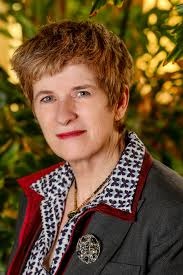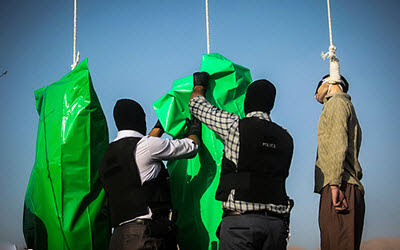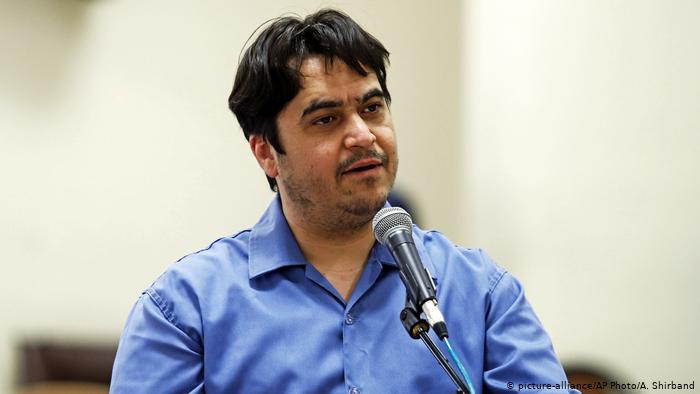Kate Gilmore
Deputy High Commissioner for Human Rights
UNOG, Palais des Nations, 1211 Geneva 20
Geneva, Switzerland
March 7, 2019
Dear Ms. Gilmore,
According to reports published in Iranian newspaper “Mehr News” quoted here, upon your recent trip to Iran “Deputy Human Rights Commissioner Kate Gilmore said that Iran is among the leading countries in the region regarding the status of human rights.
She made the remarks Wednesday in Tehran in a meeting with Farideh Olad Ghobad, the head of women faction of the Iranian Parliament.
Kate Gilmore said she is honored to see that Iranian women are playing different important and leading roles in society.
Condemning Islamophobia, racism and unilateral measures, Gilmore stressed that the issue of human rights should not become a political tool.
She went on to say that the understandings of the UN council about the status of human rights in Iran have deepened and Iran is now one of the leading countries of the region in this regard.
For her part, Olad Ghobad said that after the Islamic Revolution, Iranian women have had played effective roles in political, economic, scientific, and social realms and that the Iranian Parliament have ratified various laws to support women’s rights.”
Dear Ms. Gilmore,
We are not sure of the validity of this report but the fact is that what has been attributed to you is completely the opposite of the status of human rights and women’s right in Iran. We are not sure if while visiting Iran you had a chance to go to Evin prison to see Nasrin Sotudeh, Lawyer and women’s right defender. Amnesty International recently released a statement stating that “she, faces up to 34 years in prison and 148 lashes, after two grossly unfair trials. The charges against her stem solely from her peaceful human rights work, including her defence of women protesting Iran’s abusive forced hijab (veiling) laws, and her outspoken opposition to the death penalty.”
Among others in prison just to name a few are:
Narges Mohammadi is a distinguished and passionate defender of human rights.
Zeynab Jalalian Iranian Kurdish activist, aged 37, who is serving a life sentence imposed after a grossly unfair trial.
Husband and wife Arash Sadeghi and Golrokh Iraee are both prisoners of conscience. They were arrested together in September 2014 and were convicted and sentenced after an unfair trial that consisted only of two brief sessions in 2015. They had no legal representation at the trial.
Farhad Meysami is a physician and women’s rights defender who has been sentenced to six years in prison after being convicted of “spreading propaganda against the system” and “gathering and colluding to commit crimes against national security” for his support of the campaign against forced hijab.
Atena Daemi, an Iranian women’s rights defender and anti-death penalty campaigner was violently arrested on 26 November 2016 and taken to Evin Prison to begin serving a seven-year prison sentence for peacefully defending human rights.
Ahmadreza Djalali an Iranian-born Swedish citizen and specialist in emergency medicine, was sentenced to death in October 2017 after a grossly unfair trial. He was convicted of “spreading corruption on earth” (efsad-e fel arz) for spying. Amnesty International is urging the authorities to void the death sentence and echoes the recommendation of the United Nations to release him immediately.
Arash Sadeghi is an Iranian human rights activist and political prisoner known best for his hunger strike as an act of protest against the detention of his wife without any judiciary proof or legal warrant. Although he was diagnosed with cancer, Arash remains in prison.
Esmail Bakhshi is an Iranian political prisoner, trade unionist, and a founding member and spokesman for the independent Workers Union of Haft Tappeh Sugarcane Agro Industrial Company in the Khuzestan Province of Iran.
Sepideh Gholian is an Iranian civil rights activist, journalist and prisoner of conscience from the city of Ahvaz.
Additionally eight environmental activists arbitrarily detained in Iran in January and February 2018 remain in detention eight months later without clear charges
This is a small sample of the prisoners of conscience in Iranian prisons.
Among the limitations faced by women in Iran, is the forced Hijab as we see you had to wear while visiting Iran?
We at the Union for Secular Republic and Human Rights in Iran, would like to know if the content of the report is correct or not?
We hope to hear from you,
Sincerely,
Mehdi Amini
International Relations coordinator
USRHR
*****Following email from her office*****
Dear Mr. Amini,
I write to respond to your email dated 7 March addressed to Ms. Kate Gilmore, United Nations Deputy High Commissioner for Human Rights. While Ms. Gilmore visited Iran this week to engage in a dialogue on human rights and the administration of justice with the Iranian authorities, these were private meetings and there was no statement made to the media in that context. Moreover, the statements reported by the press as raised in your email are not accurate.
OHCHR continues to closely monitor and follow the situation of human rights lawyers and defenders as well as environmentalists, including those individual currently in detention.
The Middle East and North Africa Section of the Office of the High Commissioner for Human Rights (OHCHR) stands ready to further discussing the matter with you if needed.
Please feel free to contact me or Mr. Mohammad Ali Alnsour, Chief, Middle East and North Africa Section: malnsour@ohchr.org
Many thanks and with best regards,
Yasmine
Yasmine Abou Mansour
Human Rights Officer
Middle East North Africa Section
Field Operations and Technical Cooperation Division
Office of the United Nations High Commissioner for Human Rights






